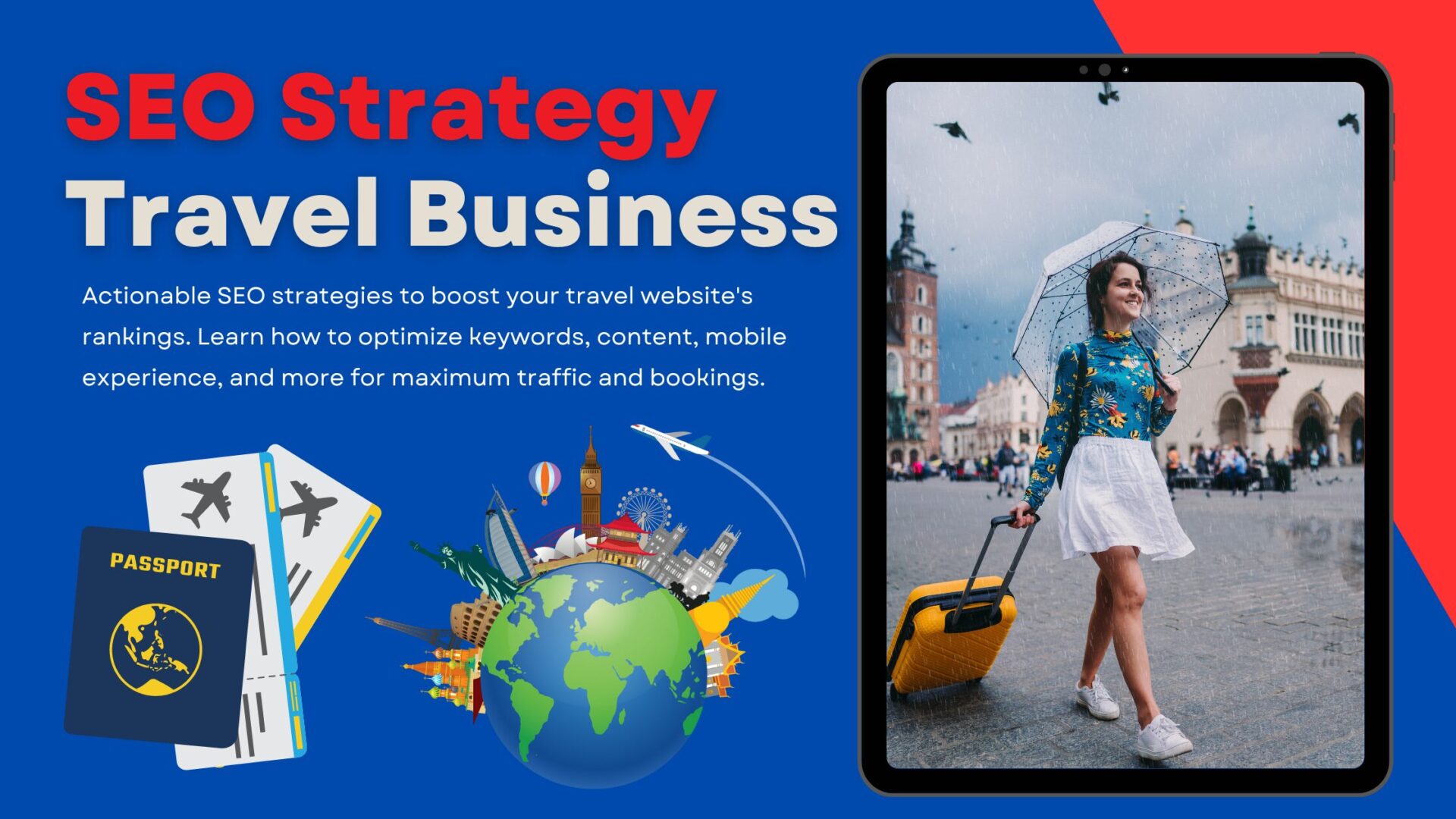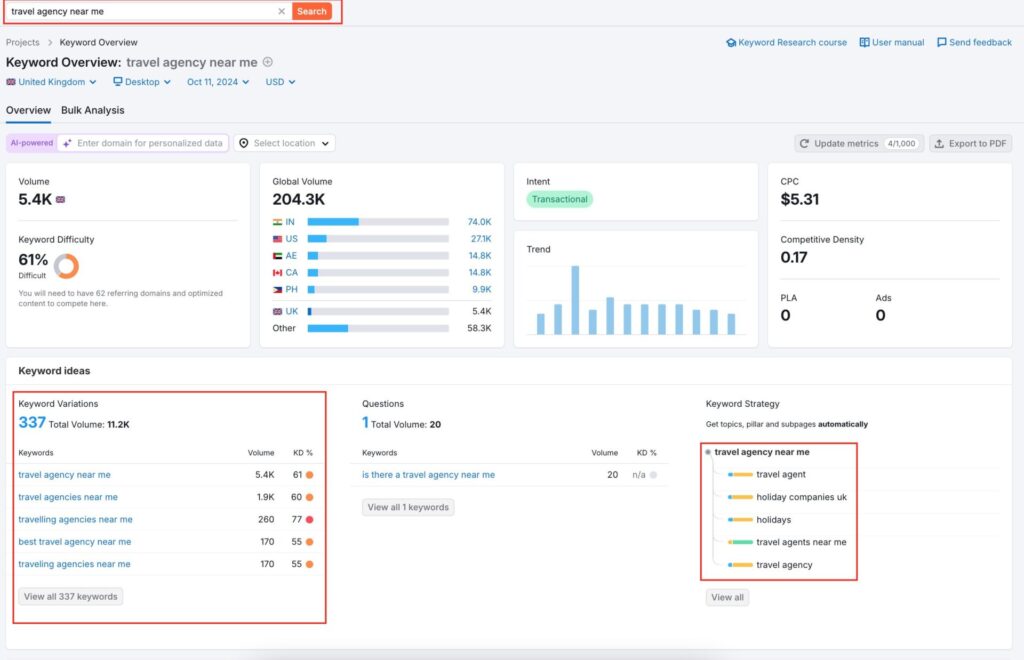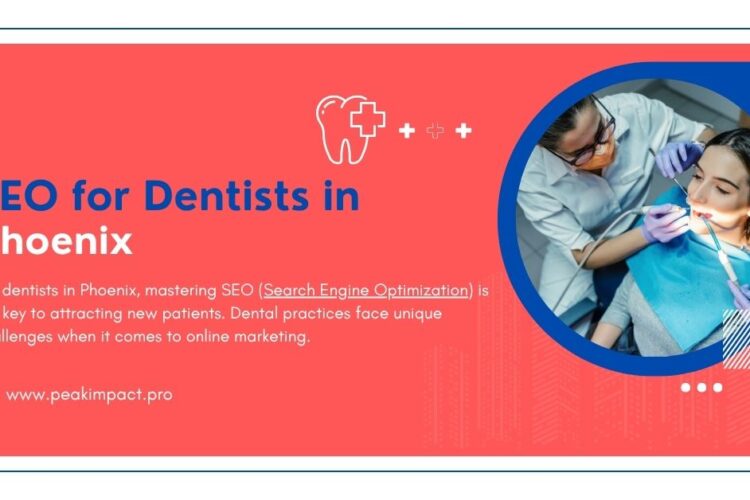
In the travel industry, ranking high on search engines is crucial for visibility and user engagement. With intense competition, a solid Travel SEO strategy is essential to capture organic traffic and convert leads. Here, we explore actionable SEO tactics for travel websites, agencies, and the tourism industry.
Quick View
SEO Strategy for Travel Businesses
Well structured travel SEO strategy is key to growing your travel business online. Focus on keyword research, local SEO, mobile optimization, and content creation. By building backlinks and monitoring progress, you’ll stay ahead in the highly competitive travel industry.
Keyword Research for Travel Websites

Understanding search intent is crucial. Travelers often search for destination-based queries, deals, and experiences. Tools like Ahrefs, Smrush, or Google Keyword Planner can help you find high-traffic, low-competition keywords.
Key Action Points:
- Target long-tail keywords: For example, “best family beach holidays Spain” has a lower competition but high relevance.
- Local SEO keywords: Include city or region-specific keywords like “best travel agency in London.”
- Service-based keywords: Use “SEO services for travel agency” or “best SEO agency for travel” to drive traffic for specific services.
Optimizing On-Page SEO

Once you identify keywords, integrate them into your travel website effectively.
Key On-Page Techniques:
- Page Titles & Meta Descriptions: Keep titles under 60 characters and descriptions around 155 characters. Example: “Top Travel Agency in Europe – Affordable Tours”
- Headings (H1, H2, H3): Break content into readable sections with relevant keywords.
- URL Structure: Keep URLs short and descriptive, such as /best-travel-tours-europe.
- Internal Linking: Link to other useful pages on your site, like guides, tours, or blogs.
Here is the perfect AI-based on-page SEO strategy.
Create High-Quality Content
Travelers crave experiences and real information. Focus on content that educates, inspires, and informs.
Ideas for Engaging Content:
- Destination Guides: Write detailed guides about top travel destinations. Example: A blog post titled “Top 10 Adventure Trips in South America” with the keyword “SEO for travel agents.”
- Travel Tips & Itineraries: Offer sample travel itineraries, packing tips, and safety guides.
- User-Generated Content: Encourage reviews, ratings, and testimonials.
Mobile Optimization: Key to Travel SEO
According to Google’s 2024 report, over 60% of travel bookings come from mobile devices. Thats why, mobile optimization is crucial for user experience and search rankings.
Best Practices for Mobile Optimization:
- Responsive Design: Ensure the website is responsive across devices.
- Fast Loading Times: Aim for a load time under 3 seconds using image compression tools like TinyPNG.
- Simple Navigation: Simplify menus and clickable links.
Local SEO for Travel Agencies
Local SEO is essential for travel agencies targeting specific geographic areas. When users search “travel agency near me,” appearing in the top results drives foot traffic and leads.
Local SEO Techniques:
- Google My Business (GMB): Keep your GMB profile updated with accurate details.
- Local Keywords: Use city-specific phrases like “top New York travel agency.”
- NAP Consistency: Ensure your Name, Address, and Phone (NAP) is consistent across directories.
Technical SEO for Travel Websites
Technical SEO forms the backbone of any successful travel SEO strategy. Without a strong technical foundation, even the best content won’t rank.
Key Technical SEO Elements:
- XML Sitemap: Submit an updated sitemap to Google Search Console.
- Robots.txt: Ensure the search engines can crawl and index your site.
- Structured Data: Add schema markup for tours, destinations, and reviews to increase visibility.
- HTTPS: Secure your site with SSL encryption to build trust.
Link Building: Building Authority in Travel SEO
Getting backlinks from authoritative travel blogs, news websites, and influencers boosts your rankings and drives referral traffic.
Link-Building Strategies:
- Guest Posting: Write travel-related guest blogs for high-authority sites.
- Partnerships: Collaborate with travel influencers or tourism boards.
- Create Sharable Content: Create infographics or research reports that others want to link to.
Tracking & Measuring SEO Success
No, the travel SEO strategy is complete without tracking its progress. Use data to refine and improve your strategy.
SEO Tools to Use:
- Google Analytics: Track organic traffic, session duration, and conversion rates.
- Google Search Console: Monitor your keyword rankings and performance.
- Ahrefs or SEMrush: Track your backlinks, keywords, and competitor performance.
Case Study: Travel SEO Success
Example: Adventure Tours Website
- Initial Traffic: 10,000 monthly visitors
- SEO Strategy: Implemented local SEO for “adventure tours in South America” and built backlinks from travel blogs.
- Results: Traffic increased to 30,000 monthly visitors in six months, with a conversion rate of 8% on booking forms.
FAQs
What is SEO in tourism?
SEO in tourism focuses on optimizing a travel website’s visibility in search engines to attract potential travelers. It involves targeting relevant keywords, creating destination-based content, and improving the website’s mobile and local search presence to capture organic traffic.
What is travel SEO?
Travel SEO is a specialized strategy for travel websites, agencies, and tourism businesses to improve their rankings in search engine results. It includes keyword research, on-page optimization, mobile-friendly design, and link building to increase traffic and convert leads into bookings.
How much does an agency charge for SEO?
SEO pricing varies depending on the scope of services, but travel SEO agencies typically charge between $500 to $5,000 per month. Pricing depends on the complexity of the strategy, the level of competition, and the number of services offered, such as content creation, technical SEO, and link building.
What does an SEO agency do?
An SEO agency optimizes your website to improve its search engine rankings. For travel websites, this includes keyword research, content optimization, technical SEO, local SEO for destination-based services, and creating high-quality backlinks to drive traffic and increase visibility.
Can I do SEO myself?
Yes, you can do SEO yourself if you understand the basic principles. You’ll need to learn keyword research, on-page optimization, content creation, and link-building techniques. For travel websites, tools like Google Search Console and SEMrush can help track your SEO efforts. However, SEO requires consistent effort and regular updates.
What is the best SEO tool?
The best SEO tool depends on your needs, but for travel SEO, Ahrefs and SEMrush are excellent for keyword research, competitor analysis, and tracking backlinks. Google Analytics and Google Search Console are also essential for monitoring traffic and site performance.
How do I get traffic from SEO?
To get traffic from SEO, optimize your travel website with relevant keywords, create high-quality content, and ensure mobile-friendliness. Use local SEO techniques to target travelers in specific locations and build backlinks from high-authority travel blogs. Over time, these efforts will increase organic traffic.
How do I get traffic from Google Maps through SEO?
Optimizing your travel agency’s Google My Business profile is key to improving your local SEO. Ensure your business details, reviews, and photos are up-to-date. This will help you appear in Google Maps results, especially for local searches like “travel agency near me,” driving traffic to your site or physical location.




